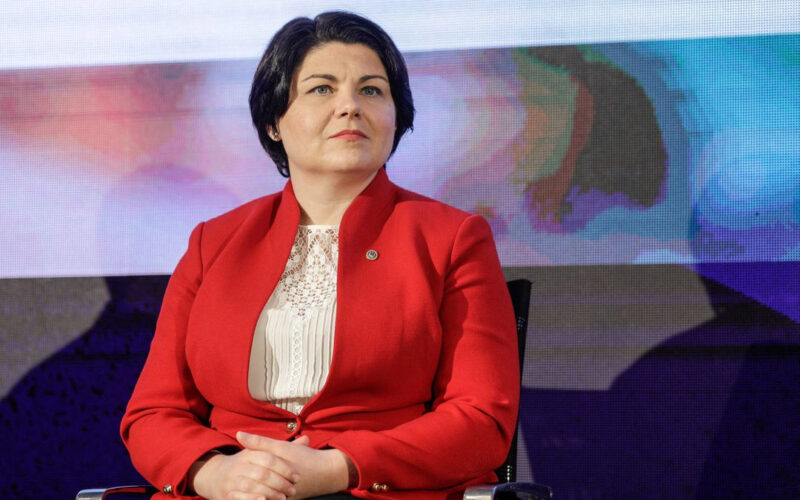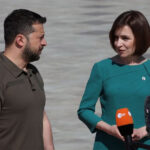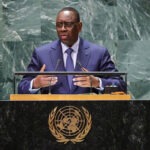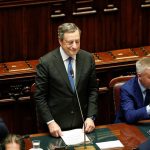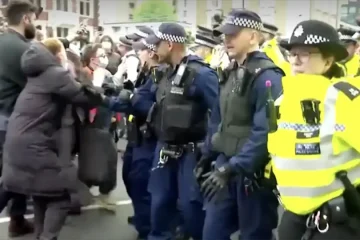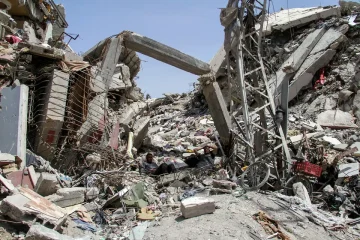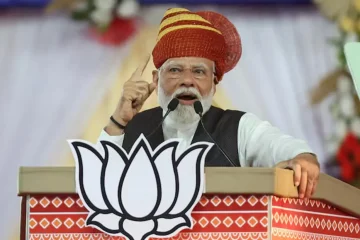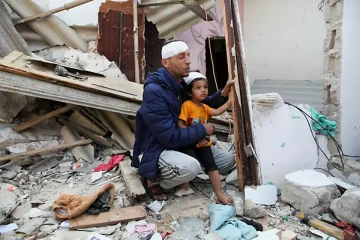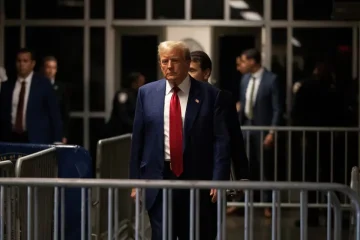MOLDOVA’S pro-Western government resigned on Friday after a turbulent 18 months in power marked by economic turmoil and the spillover effects of Russia’s war in neighbouring Ukraine.
President Maia Sandu accepted Prime Minister Natalia Gavrilita’s resignation and nominated 48-year-old presidential aide and former interior minister Dorin Recean to replace her.
Recean, who is expected to quickly win parliamentary approval, said he would press on with Moldova’s bid to join the European Union and revive the economy.
“The new government will have three priorities: Order and discipline, a new life and economy, and peace and stability,” Recean, a defence adviser to Sandu and secretary of Moldova’s security council, told a news briefing.
His challenges include dealing with what Moldova portrays as attempts by Russia to destabilise the tiny former Soviet republic of 2.5 million people which borders Ukraine and NATO and EU member Romania.
Russia, which has troops in Moldova’s breakaway region of Transdniestria, has bristled at the possibility of former Soviet republics joining the EU.
Tensions rose further on Friday when Chisinau said a Russian missile had violated Moldovan airspace before hitting Ukraine and summoned Russia’s ambassador to protest.
The foreign ministry condemned “the latest unfriendly actions and statements against Moldova” and said they were “absolutely unacceptable.”
‘SO MANY CRISES’
Sandu thanked the outgoing government for its efforts in what she was “a time of so many crises.”
“In spite of unprecedented challenges, the country was governed responsibly, with a lot of attention and dedicated work. We have stability, peace and development – where others wanted war and bankruptcy.”
Gavrilita became prime minister in August 2021 after her pro-European Party of Action and Solidarity secured a majority in parliament with a mandate to clean up corruption.
EU leaders accepted Moldova as a membership candidate last year in a diplomatic triumph for Sandu. The government had been mapping out reforms to accelerate accession to the 27-nation bloc and working on diversifying its energy supply.
But Moldova faces soaring inflation and has struggled to cope with an influx of Ukrainian refugees. It has also suffered power cuts after Russian attacks on Ukrainian energy facilities and struggled to end its reliance on Russian gas.
The steep price increases, particularly for Russian gas, led to street protests last year in which demonstrators called for the government and Sandu to resign.
The protests, organised by the party of exiled opposition politician Ilan Shor, marked the most serious political challenge to Sandu since her landslide election wins in 2020 on a pro-European and anti-corruption platform.
Chisinau has described the protests as part of a Kremlin-sponsored campaign to destabilise the government.
Political analyst Iulian Groza, of the Institute for European Policies and Reforms in Chisinau, said Friday’s reshuffle was meant to “re-energise” the cabinet.
“This government has been working in a crisis management environment for over a year-and-a-half,” he said.
Groza, a former deputy foreign minister, predicted a new cabinet would be presented to parliament by the end of next week.

